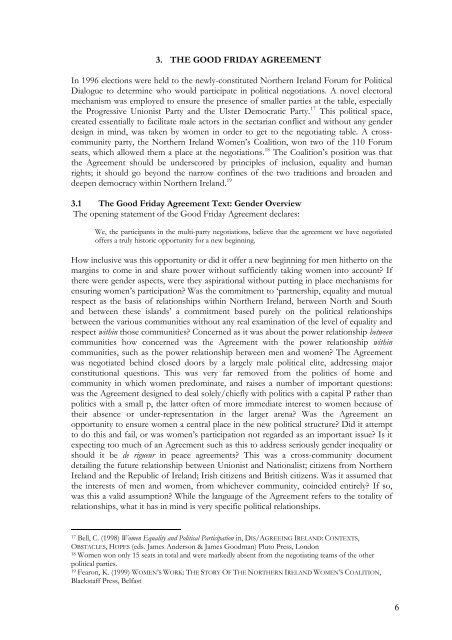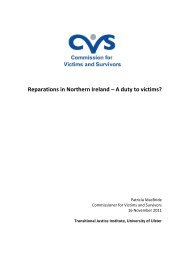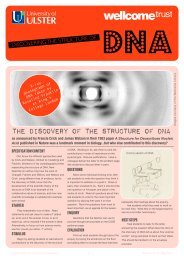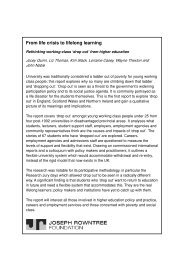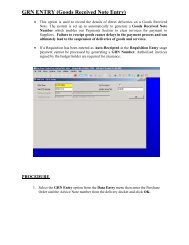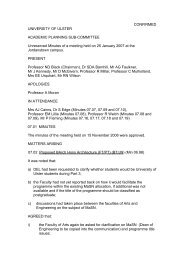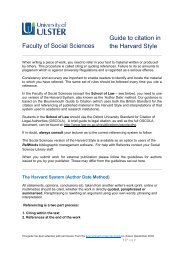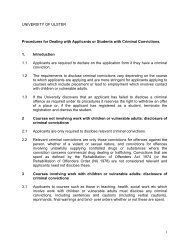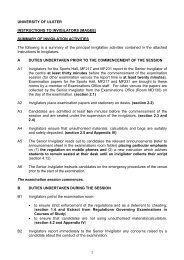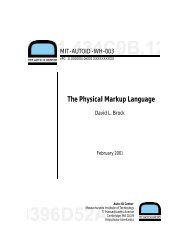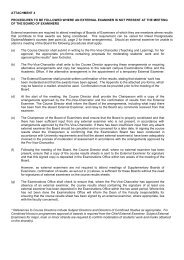Agreement Reached in the Multi-Party Negotiations - Transitional ...
Agreement Reached in the Multi-Party Negotiations - Transitional ...
Agreement Reached in the Multi-Party Negotiations - Transitional ...
Create successful ePaper yourself
Turn your PDF publications into a flip-book with our unique Google optimized e-Paper software.
3. THE GOOD FRIDAY AGREEMENT<br />
In 1996 elections were held to <strong>the</strong> newly-constituted Nor<strong>the</strong>rn Ireland Forum for Political<br />
Dialogue to determ<strong>in</strong>e who would participate <strong>in</strong> political negotiations. A novel electoral<br />
mechanism was employed to ensure <strong>the</strong> presence of smaller parties at <strong>the</strong> table, especially<br />
<strong>the</strong> Progressive Unionist <strong>Party</strong> and <strong>the</strong> Ulster Democratic <strong>Party</strong>. 17 This political space,<br />
created essentially to facilitate male actors <strong>in</strong> <strong>the</strong> sectarian conflict and without any gender<br />
design <strong>in</strong> m<strong>in</strong>d, was taken by women <strong>in</strong> order to get to <strong>the</strong> negotiat<strong>in</strong>g table. A crosscommunity<br />
party, <strong>the</strong> Nor<strong>the</strong>rn Ireland Women’s Coalition, won two of <strong>the</strong> 110 Forum<br />
seats, which allowed <strong>the</strong>m a place at <strong>the</strong> negotiations. 18 The Coalition’s position was that<br />
<strong>the</strong> <strong>Agreement</strong> should be underscored by pr<strong>in</strong>ciples of <strong>in</strong>clusion, equality and human<br />
rights; it should go beyond <strong>the</strong> narrow conf<strong>in</strong>es of <strong>the</strong> two traditions and broaden and<br />
deepen democracy with<strong>in</strong> Nor<strong>the</strong>rn Ireland. 19<br />
3.1 The Good Friday <strong>Agreement</strong> Text: Gender Overview<br />
The open<strong>in</strong>g statement of <strong>the</strong> Good Friday <strong>Agreement</strong> declares:<br />
We, <strong>the</strong> participants <strong>in</strong> <strong>the</strong> multi-party negotiations, believe that <strong>the</strong> agreement we have negotiated<br />
offers a truly historic opportunity for a new beg<strong>in</strong>n<strong>in</strong>g.<br />
How <strong>in</strong>clusive was this opportunity or did it offer a new beg<strong>in</strong>n<strong>in</strong>g for men hi<strong>the</strong>rto on <strong>the</strong><br />
marg<strong>in</strong>s to come <strong>in</strong> and share power without sufficiently tak<strong>in</strong>g women <strong>in</strong>to account? If<br />
<strong>the</strong>re were gender aspects, were <strong>the</strong>y aspirational without putt<strong>in</strong>g <strong>in</strong> place mechanisms for<br />
ensur<strong>in</strong>g women’s participation? Was <strong>the</strong> commitment to ‘partnership, equality and mutual<br />
respect as <strong>the</strong> basis of relationships with<strong>in</strong> Nor<strong>the</strong>rn Ireland, between North and South<br />
and between <strong>the</strong>se islands’ a commitment based purely on <strong>the</strong> political relationships<br />
between <strong>the</strong> various communities without any real exam<strong>in</strong>ation of <strong>the</strong> level of equality and<br />
respect with<strong>in</strong> those communities? Concerned as it was about <strong>the</strong> power relationship between<br />
communities how concerned was <strong>the</strong> <strong>Agreement</strong> with <strong>the</strong> power relationship with<strong>in</strong><br />
communities, such as <strong>the</strong> power relationship between men and women? The <strong>Agreement</strong><br />
was negotiated beh<strong>in</strong>d closed doors by a largely male political elite, address<strong>in</strong>g major<br />
constitutional questions. This was very far removed from <strong>the</strong> politics of home and<br />
community <strong>in</strong> which women predom<strong>in</strong>ate, and raises a number of important questions:<br />
was <strong>the</strong> <strong>Agreement</strong> designed to deal solely/chiefly with politics with a capital P ra<strong>the</strong>r than<br />
politics with a small p, <strong>the</strong> latter often of more immediate <strong>in</strong>terest to women because of<br />
<strong>the</strong>ir absence or under-representation <strong>in</strong> <strong>the</strong> larger arena? Was <strong>the</strong> <strong>Agreement</strong> an<br />
opportunity to ensure women a central place <strong>in</strong> <strong>the</strong> new political structure? Did it attempt<br />
to do this and fail, or was women’s participation not regarded as an important issue? Is it<br />
expect<strong>in</strong>g too much of an <strong>Agreement</strong> such as this to address seriously gender <strong>in</strong>equality or<br />
should it be de rigueur <strong>in</strong> peace agreements? This was a cross-community document<br />
detail<strong>in</strong>g <strong>the</strong> future relationship between Unionist and Nationalist; citizens from Nor<strong>the</strong>rn<br />
Ireland and <strong>the</strong> Republic of Ireland; Irish citizens and British citizens. Was it assumed that<br />
<strong>the</strong> <strong>in</strong>terests of men and women, from whichever community, co<strong>in</strong>cided entirely? If so,<br />
was this a valid assumption? While <strong>the</strong> language of <strong>the</strong> <strong>Agreement</strong> refers to <strong>the</strong> totality of<br />
relationships, what it has <strong>in</strong> m<strong>in</strong>d is very specific political relationships.<br />
17 Bell, C. (1998) Women Equality and Political Participation <strong>in</strong>, DIS/AGREEING IRELAND: CONTEXTS,<br />
OBSTACLES, HOPES (eds. James Anderson & James Goodman) Pluto Press, London<br />
18 Women won only 15 seats <strong>in</strong> total and were markedly absent from <strong>the</strong> negotiat<strong>in</strong>g teams of <strong>the</strong> o<strong>the</strong>r<br />
political parties.<br />
19 Fearon, K. (1999) WOMEN’S WORK: THE STORY OF THE NORTHERN IRELAND WOMEN’S COALITION,<br />
Blackstaff Press, Belfast<br />
6


